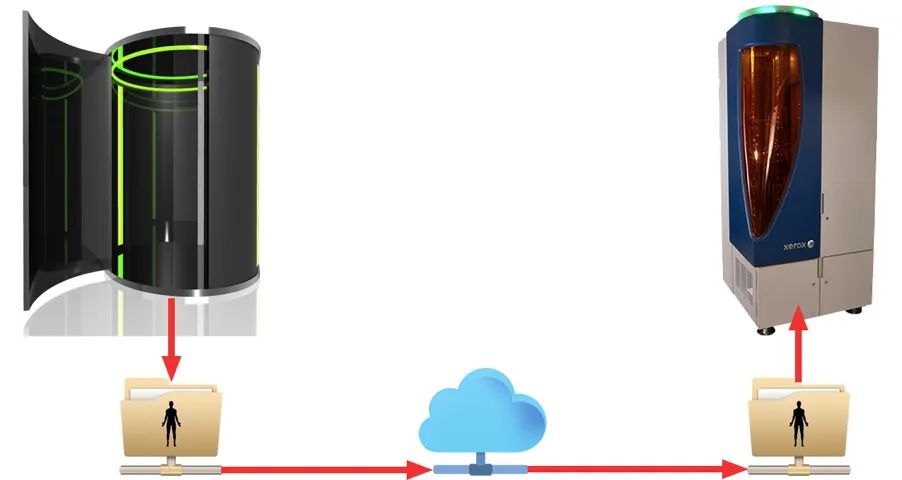
When I was young, my best friend had an elderly uncle we used to visit occasionally in Bolton (UK). He was retired and used to work for the government. He liked to tell stories from time to time, and one of the most exciting ones went something like the following…
He used to work for GCHQ (equivalent of the CIA in the US) in the 1960’s where he said he worked on top secret projects. One of those projects was a teleportation device that could transport people anywhere in the world instantly. He said by the time he retired, this was fully developed and operational.
Now, I know this is 99.999% likely a story just told to entertain gullible kids, but it got me excited by the concept of teleportation from a very early age. I’ve never been a good flyer and teleportation is an enticing concept that would change everything about the world as we know it. Just imagine if you could work anywhere in the world, live anywhere else in the world and get to work within 15 minutes.
I think we are less than a hundred years from a working device being available. Technically, some of the technologies we need to make this work exist today, but they aren’t yet usable for the scope and scale we would need.
Current papers and research on the subject point to Quantum Entanglement (QE), that Einstein famously described as ‘Spooky action at a distance’. In Quantum Entanglement pairs of particles are arranged in such a way that the measured state of those particles will remain identical even if separated by any distance.

However, I’m not sure Quantum Entanglement is required for the teleportation of humans. First of all you would have to create a duplicate copy of the individual but with quantum entangled particles. Then you would physically have to transport these particles to the destination.
The resolution of body scanners improves every year and is lightyears more advanced that just 20 years ago. Scanning Tunnelling Microscopes (STN’s) can measure individual atomic surfaces and also place individual atoms on a surface. Transatlantic Internet links exceed 100 gbps and get faster every day.
Enhancements to these technologies I believe are what will make human teleportation a reality. For the sake of this article, let us assume it takes the following form:

- Body instantly snapshotted by a particle scanner (using advanced STN) to a Digital Body File (DBF)
- DBF transmitted over a secure high-speed connection (Internet) to Destination
- DBF 3D printed (using advanced STN) at Destination
- Destination confirms to Source that transfer complete and printed
- Source vaporizes original Body
- Source and Destination delete DBF file (or archive it)
Of course, the scanners and printers would require a very high level of security to prevent abuse by hackers or governments (more details below). The same solution could also be used to replace cryogenics and cloning.

This solution introduces a host of ethical, legal and logistical questions that I would like to prompt discussion on. The following are some of the interesting challenges I thought of, but there would be many more:
- Would an atomic level scan, copy everything about the person including the soul, mind and memories?
- Would the Destination copy have all the same legal rights and responsibilities as the Source?
- Would the Source copy have the right to live, after the Destination has been created?
- Would the destruction of the original in step 5 be murder, even if it was sanctioned by the person transferring?
- Would the DBF files be archived for audit and security reasons (for example tracing murderers)
- How would storage of the DBF files be protected to prevent illegal cloning, both in transit and archived?
- If they are, should governments be allowed to access them for solving crimes?
- Would your Family have rights to access your DBF file after your death and re-create you (maybe against your wishes)?
- If the DBF file was re-printed at a later date (let’s say 100 years), would this constitute immortality?
- If a person was dying, should multiple clones be sent to different operating theatres and different procedures performed on each to see which survives?
- If you can be anywhere on the planet in 15 minutes what happens to globalization and employee sourcing?
- What would the impact on property pricing be around the world?
- The technology would be able to scan and clone anything, including gold and limited resources. What would happen to the economy should this happen?
- If the technology is used for cloning, then why work if you could just clone the money?
- What would happen to the global transportation economy and companies?
- Why build manned spacecrafts if you could just sent a printer to a remote destination with a microwave radio link?
And the list goes on and on. Please comment and resteem this article to promote discussion.